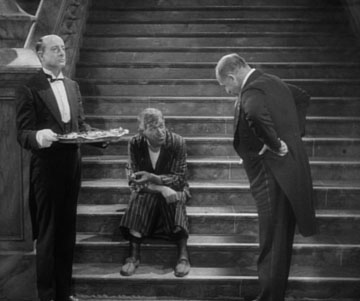
Will Rogers (centre) would rather eat a snack on the stairs than attend his wife’s dinner party. Image: cinemasparagus.blogspot.ca
(This post is part of the Classic Movie History Project Blogathon.)
In September, the London Stock Exchange crashed; Wall Street was to follow before the end of October.
1929 was the year Greece outlawed political insurrections, Afghanistan suffered civil war and revolution, and Joseph Stalin kicked Leon Trotsky out of the Soviet Union. And in the West? There was a colossal economic implosion and the start of the Great Depression.
The signs were there: a small-scale market crash in March of that year; dubious Wall Street decisions; overextended consumer credit. But society rolled merrily along, and why not? You can’t blame anyone for wanting to believe the economy will always charge over the hill to save the day.
Hollywood movies reflected this optimism. Gold Diggers of Broadway was the highest-grossing film of the year, followed by Sunny Side Up and The Cock-Eyed World. The first Academy Awards were hosted that year (Wings won Best Picture), and Hallejuah! was released – the first film with an African-American cast.
Actor/humorist Will Rogers made his first talking picture in 1929: They Had to See Paris. This well-dressed comedy, the 27th top grossing film of the year, could almost be the story of the Western World during this period of uncertainty.
Rogers plays an small-town-Oklahoma auto mechanic with two grown children. When his newly-constructed oil well literally becomes a gusher, his wife (Irene Rich) decides they must take their children to Paris so they can meet All The Right People. Although Rogers firmly believes all the right people live in his small Oklahoma town, he accompanies his family to the City of Lights.
This is an amusing film, with some poignant moments and real exterior shots of 1920s Paris. But Director Frank Borzage is telling a bigger story than what appears to be a feel-good, America-is-the-best-country-in-the-world romp.
Example: When Rogers’ well is first put into operation, his fellow townspeople gather to watch. The oil derrick sits at the top of the hill, while the townspeople stand below. A man slides a metal weight down the well and oil immediately sprays upwards, spewing barrels of the stuff. As oil runs down the hill, the townspeople seem to welcome the black liquid, scooping it up with their their hands, almost as if in an act of worship.
Another notable scene hints at the sizeable economic loss France suffered as a result of World War I. When his wife throws a party for French aristocrats at their country château, Rogers is shocked to discover she is paying honorariums to many of the guests, a practice that started after the war.
The film also gives a nod to the sizeable American ex-patriate community living the bohemian life in Paris at the time. Rogers’ son (Owen Davis, Jr.) gives his parents the slip and secretly moves in with an attractive young artist in the Quartier Latin.
They Had to See Paris is more than a vehicle for Will Rogers. It offers a glimpse of the Western World just before the stock market crash. The film’s themes of helping those in need, and placing importance on family and friends, were the traits folks needed to help grind their way through the Great Depression.
They Had to See Paris: starring Will Rogers, Irene Rich, Owen Davis, Jr. Directed by Frank Borzage. Scenario by Sonya Levien. Dialogue by Owen Davis. Fox Film Corp., B&W, 1929, 95 mins.
This post is part of the Classic Movie History Project Blogathon hosted by Movies Silently, Once Upon a Screen and yours truly. Please be sure to read the other contributions:
The Silent Era (1915-1926): Hosted by Movies, Silently
An Uncertain World (1927-1938): Hosted by Silver Screenings
The War Years (1939-1950): Hosted by Once Upon a Screen
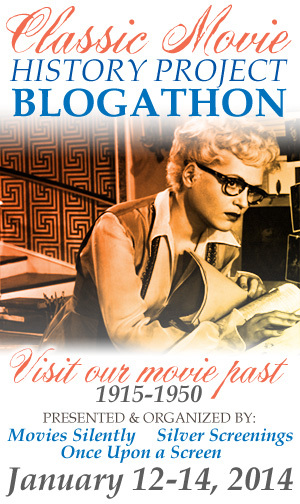


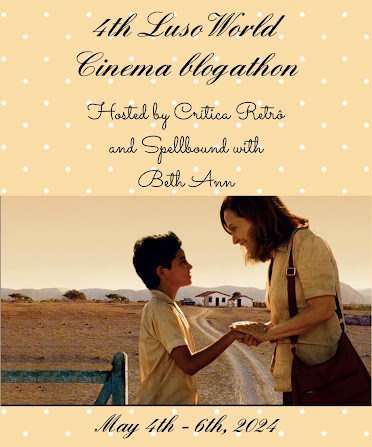

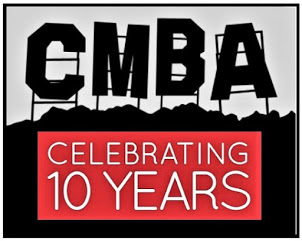


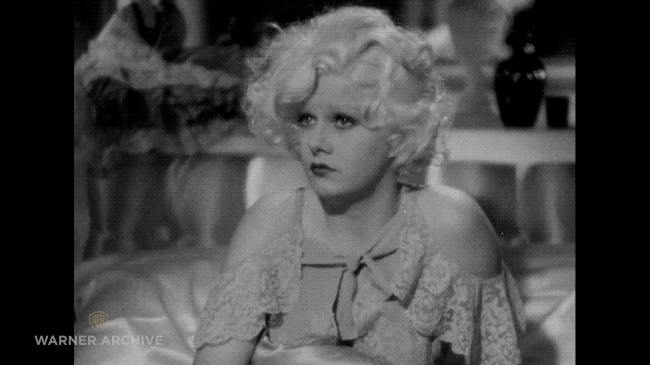



“They Had to See Paris” sounds like a winner. I’m always impressed by Will Rogers. We learn a lot about people through laughs.
LikeLike
Will Rogers is a treat anytime, but especially in this film. All the other actors seem very aware that they’re in a Movie, but Rogers doesn’t seem to care that he’s in front of the cameras.
LikeLike
Will Rogers does these kinds of films really well. His humor is always appreciated, but it’s his films that have something to say that I enjoy most. Thanks for the post, and for this great blogathon.
LikeLike
In her autobiography, Shirley Temple says the nicest things about Will Rogers…and how sad it was when he died. I’m going to make his movies a priority.
LikeLike
1929 was also the year of one of my favorite early sound pictures, THE LOVE PARADE. Ernst Lubitsch was a brilliant director and what he chooses to let us hear–and not hear–makes his movie a comedy classic.
LikeLike
I haven’t actually seen “The Love Parade”. Thanks for the recommendation!
LikeLike
Hi Silver Screenings!
I really enjoyed reading about Will Rogers and his first talkie, They Had To See Paris. I haven’t seen this movie yet but it sounds very interesting! Great write-up!
Many thanks for hosting this fabulous blogathon 🙂 What a wonderful, enlightening venture!
LikeLike
This blogathon HAS been a wonderful, enlightening venture, as you put it. Thanks for dropping by. 🙂
LikeLike
Great post! I probably generalized too much in my 1930 post when I said 1929 didn’t have many good films. It did, but maybe they weren’t the ones we hear about nowadays. Will certainly keep my eye out for this film in the future. Thanks so much for hosting this wonderful blogathon!
LikeLike
Ruth, you picked a great post in THEY HAD TO SEE PARIS! Will Rogers is always worth watching, but it’s especially relevant with the stock market crash on the horizon back then! Excellent job, my friend; you and the rest of the gang are teaching me a valuable lesson about that era, while still being fun to read! 🙂
LikeLike
Artistic Packrat: I hope you get the chance to see this film, although I haven’t noticed it on TCM’s schedule. It’s worth it!
Dorian: Thanks for dropping by, my friend. All the posts in this blogathon have been terrific, haven’t they?
LikeLike
I love Will Rogers, so I have to see this one. Thanks for going into the deeper background. I have to admit when I read your description “When his newly-constructed oil well literally becomes a gusher, his wife (Irene Rich) decides they must take their children to Paris…” I started to hear the theme from the Beverly Hillbillies in my head.
LikeLike
Ha ha – I know what you mean! When I first heard about this movie a few years ago, I thought the same thing! Thanks for dropping by. 🙂
LikeLike
This sounds fascinating, Rogers unleashing his wisdom in a unique situation, time and place. What most intrigues me is your line about it offering a “glimpse of the Western World just before the stock market crash.” This post whets my appetite for more of that, got to hunt this one down!
LikeLike
I’m keen to read your review, Cliff, when you do see this one. Rogers is truly a fresh of breath air in this film, like he always is.
LikeLike
very interesting, haven’t seen this but as with many of the great posts in this blogathon, it’s fascinating when you look at the movies with our POV to pick out the concerns, the specific criticisms and comments the films make on their times… sometimes things that weren’t even noticed by the audiences then. Thanks for co-hosting!
LikeLike
You’re right – having our POV and the advantage of knowing what happened in the intervening years is certainly a bonus when watching these films. I found this one really fascinating as a “barometer” of pre-Depression times.
LikeLike
I’m fond of Will Rogers but my dad is a major fan of his. You know our International Airport here in OKC is the Will Rogers International Airport so there is that. ha ha
I’m sorry I couldn’t participate in this Blogathon. What a clever and original idea you girls had. (One of so many.)
I always enjoy your articles and this one didn’t disappoint.
All the best!
Page
LikeLike
Thanks for dropping by, Page. I didn’t realize the airport at OKC was named for Will Rogers, and so it should. I was glad to hear it.
I’m sorry that you couldn’t participate in the blogathon, but I realize life gets pretty busy at times! 🙂 This one was the brainchild of Fritzi at Movies, Silently.
LikeLike
Now this sounds like a film I would love to see. Excellent job and thanks ever so for hosting this awesome event!
LikeLike
I love, absolutely love, Will Rogers in this film. He’s charming and funny and seems very kind.
LikeLike
You make this sound like essential viewing. I will hope to catch up with it, and with more films from 1929 – a fascinating year for all the reasons you point out here, like the changeover from silents to talkies and the Wall Street crash.
I love Pabst’s two great German films from this year, ‘Diary of a Lost Girl’ and ‘Pandora’s Box’ – but there are loads of others from 1929 that I need to see!
LikeLike
There really is so much to enjoy about Hollywood movies from 1929. An interesting year – both cinematically and economically!
LikeLike
Just realised I’m actually seeing a British film from 1929 at the cinema tonight – Hitchcock’s silent version of ‘Blackmail’, with a pianist playing. Looking forward to that one!
LikeLike
That sounds wonderful! I bet it will be fantastic. Have fun!
LikeLike
Great fun and thanks for providing the historical context to really make us understand the biting social commentary hidden under Rogers’ “aw, shucks” demeanor. Oh and great job hostessing too 😉
LikeLike
Thanks, Fritzi! Yours was a brilliant idea.
And here’s to Will Rogers and his “aw, shucks” demeanor!
LikeLike
This seems like a very interesting movie, Ruth. I’m growing fond of Borzage every day, and this is now in my to-watch list.
Thanks for this wonderful event!
Kisses!
LikeLike
I’m starting to learn more about Borzage, too. I have a small collection of his films that I’ve been going through and have so far enjoyed each one.
Thanks for dropping by!
LikeLike
I have always been fascinated with this time period so reading your review of this movie was very interesting. I love movies and books where you can learn about the time they are set in. I will be looking for this one to watch for those reasons and also to see Will Rogers. What a great theme you all chose for movies to review. Thanks for your insight and suggestion of this movie, Ruth!
LikeLike
Thanks! There is so much to say about 1929 that I decided to focus on one movie that I felt captured its “zeitgeist”. Besides, a person can’t go wrong with Will Rogers.
LikeLike